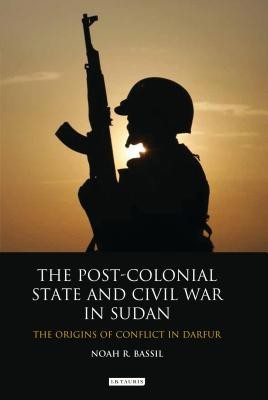
- We will send in 10–14 business days.
- Author: Noah R Bassil
- Publisher: I. B. Tauris & Company
- Year: 2013
- Pages: 320
- ISBN-10: 178076085X
- ISBN-13: 9781780760858
- Format: 14.6 x 22.6 x 3.1 cm, hardcover
- Language: English
- SAVE -10% with code: EXTRA
The Post-Colonial State and Civil War in Sudan The Origins of Conflict in Darfur (e-book) (used book) | bookbook.eu
Reviews
Description
The humanitarian crisis in Darfur, a consequence of the civil war and ongoing violence, has attracted significant international media attention. Here, Noah Bassil offers a re-conception of the conflict in Darfur by examining the origins and progression of the conflict through the broader issue of state failure in post-colonial Sudan. By moving away from a 'localized' view of the conflict, Bassil is able to demonstrate the extent to which the breakdown of social relations in Darfur is interconnected with the wider breakdown of Sudanese and post-colonial societies, offering an examination of the nexus between international, national and local forces. Through its coherent framework for understanding the causes of the civil war that erupted in the Darfur region in 2003, this book provides a unique examination of the conflict and the wider post-colonial situation, making it an important contribution to the fields of History, International Relations and Peace Studies.
EXTRA 10 % discount with code: EXTRA
The promotion ends in 21d.01:42:19
The discount code is valid when purchasing from 10 €. Discounts do not stack.
- Author: Noah R Bassil
- Publisher: I. B. Tauris & Company
- Year: 2013
- Pages: 320
- ISBN-10: 178076085X
- ISBN-13: 9781780760858
- Format: 14.6 x 22.6 x 3.1 cm, hardcover
- Language: English English
The humanitarian crisis in Darfur, a consequence of the civil war and ongoing violence, has attracted significant international media attention. Here, Noah Bassil offers a re-conception of the conflict in Darfur by examining the origins and progression of the conflict through the broader issue of state failure in post-colonial Sudan. By moving away from a 'localized' view of the conflict, Bassil is able to demonstrate the extent to which the breakdown of social relations in Darfur is interconnected with the wider breakdown of Sudanese and post-colonial societies, offering an examination of the nexus between international, national and local forces. Through its coherent framework for understanding the causes of the civil war that erupted in the Darfur region in 2003, this book provides a unique examination of the conflict and the wider post-colonial situation, making it an important contribution to the fields of History, International Relations and Peace Studies.


Reviews